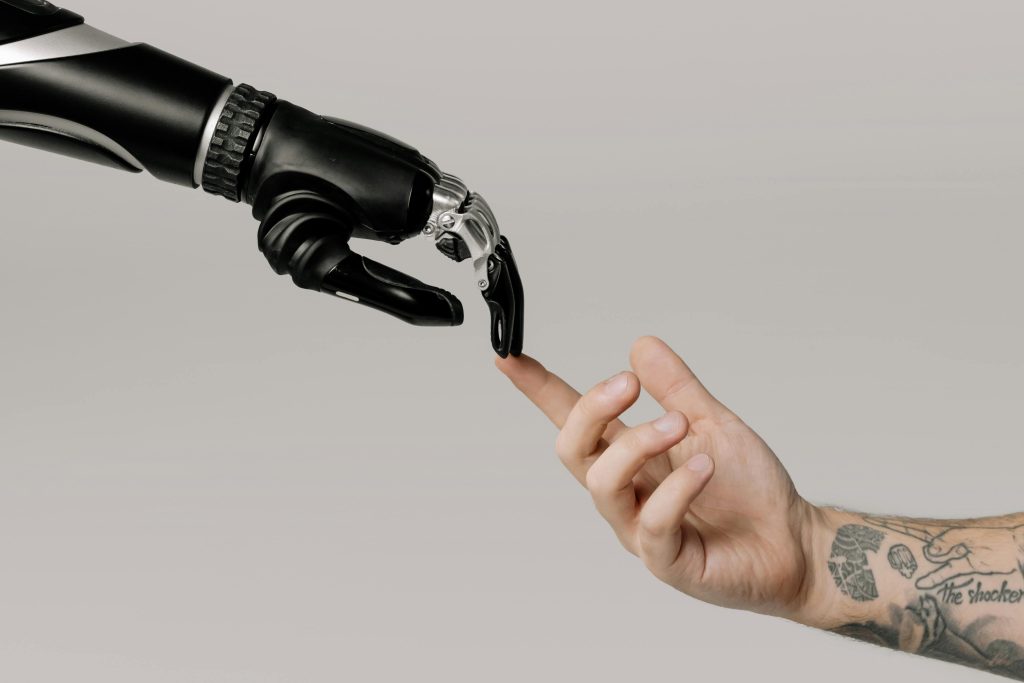Introduction: In today’s digital age, Artificial Intelligence (AI) stands as the beacon of innovation, transforming the landscape of various industries. From healthcare to finance, education to transportation, AI is revolutionizing processes, enhancing efficiency, and unlocking new possibilities. This article delves into the realm of Artificial Intelligence, exploring its diverse applications, benefits, and the profound impact it continues to have on society.
Understanding Artificial Intelligence
Artificial Intelligence, often abbreviated as AI, refers to the simulation of human intelligence in machines programmed to perform tasks that typically require human cognition. This includes learning, problem-solving, perception, and decision-making. At its core, AI aims to mimic human intelligence, enabling machines to analyze data, recognize patterns, and make informed decisions autonomously.
The Evolution of Artificial Intelligence
From its inception to the present day, AI has undergone a remarkable evolution, fueled by advancements in technology and data-driven insights. Initially conceived as a theoretical concept, AI has transitioned into a tangible reality, with rapid developments in machine learning, neural networks, and deep learning algorithms. These advancements have empowered AI systems to process vast amounts of data, leading to unprecedented levels of accuracy and efficiency. You may also like to know about Unleash the Best Gadgets for Men: Your Ultimate Guide to Tech Marvels.
Applications of Artificial Intelligence
Healthcare
Artificial Intelligence has revolutionized the healthcare industry, offering innovative solutions for disease diagnosis, treatment planning, and personalized patient care. AI-powered systems can analyze medical images, detect anomalies, and assist healthcare professionals in making accurate diagnoses. Additionally, AI-driven predictive analytics facilitate early disease detection and enable proactive interventions, ultimately improving patient outcomes.
Finance- Artificial Intelligence
In the realm of finance, AI technologies are driving significant transformations, enhancing operational efficiency, and mitigating risks. Automated trading algorithms leverage AI to analyze market trends, execute trades, and optimize investment portfolios in real-time. Moreover, AI-powered chatbots and virtual assistants streamline customer service interactions, providing personalized recommendations and resolving queries promptly.
Education- Artificial Intelligence
Artificial Intelligence is reshaping the education sector, ushering in a new era of personalized learning experiences. AI-enabled tutoring systems adapt to individual learning styles, providing customized lesson plans and real-time feedback to students. Furthermore, AI-driven educational platforms leverage data analytics to identify areas for improvement, helping educators tailor their teaching strategies and optimize learning outcomes.
Transportation
In the field of transportation, AI is driving innovation and shaping the future of mobility. Autonomous vehicles, powered by AI algorithms and sensor technology, offer the promise of safer roads, reduced congestion, and enhanced mobility for all. Additionally, AI-driven traffic management systems optimize route planning, minimize travel time, and improve overall transportation efficiency.
Benefits of Artificial Intelligence
Enhanced Efficiency
One of the primary benefits of Artificial Intelligence is its ability to streamline processes and improve efficiency across various domains. By automating repetitive tasks and leveraging predictive analytics, AI systems optimize resource allocation, minimize downtime, and enhance productivity.
Data-Driven Insights- Artificial Intelligence
Artificial Intelligence enables organizations to harness the power of big data, extracting actionable insights and driving informed decision-making. By analyzing vast datasets in real-time, AI algorithms uncover hidden patterns, trends, and correlations, empowering businesses to gain a competitive edge and seize new opportunities.
Improved Accuracy- Artificial Intelligence
AI-driven systems exhibit unparalleled levels of accuracy and precision, outperforming human capabilities in various tasks. Whether it’s medical diagnosis, financial forecasting, or natural language processing, AI algorithms deliver consistent results with minimal margin for error, thereby enhancing reliability and trustworthiness.
The Impact of Artificial Intelligence on Society
The widespread adoption of Artificial Intelligence has far-reaching implications for society, shaping the way we work, communicate, and interact with the world around us. While AI presents numerous opportunities for innovation and advancement, it also raises important ethical, social, and economic considerations that must be addressed.
Conclusion
In conclusion, Artificial Intelligence represents a transformative force that is reshaping the world as we know it. From healthcare to finance, education to transportation, AI is driving innovation, fueling growth, and unlocking new possibilities for the future. As we navigate the complex landscape of AI-driven technologies, it is essential to harness its potential responsibly, ensuring that AI continues to benefit society while upholding ethical principles and values.
FAQs (Frequently Asked Questions)
1. How is Artificial Intelligence transforming healthcare?
Artificial Intelligence is revolutionizing healthcare by enabling early disease detection, personalized treatment plans, and improved patient outcomes. AI-powered systems analyze medical data, identify patterns, and assist healthcare professionals in making informed decisions.
2. What role does AI play in financial services?
In the financial services sector, AI powers automated trading algorithms, fraud detection systems, and customer service chatbots. By leveraging machine learning and data analytics, financial institutions enhance operational efficiency, mitigate risks, and deliver personalized services to clients.
3. How does Artificial Intelligence impact education?
Artificial Intelligence is reshaping education through personalized learning experiences, adaptive tutoring systems, and data-driven insights. AI-enabled platforms cater to individual student needs, provide targeted feedback, and optimize learning outcomes for students of all ages.
4. What are the benefits of AI in transportation?
AI technologies offer numerous benefits in transportation, including enhanced safety, reduced congestion, and improved efficiency. Autonomous vehicles and AI-driven traffic management systems promise to revolutionize mobility, making transportation more accessible and sustainable.
5. What ethical considerations surround the use of AI?
The widespread adoption of AI raises important ethical considerations regarding privacy, bias, and accountability. Ensuring transparency, fairness, and responsible use of AI technologies is essential to mitigate potential risks and safeguard societal values.
6. How can businesses leverage AI for competitive advantage?
Businesses can leverage AI to gain a competitive advantage by harnessing the power of data, automating processes, and delivering personalized experiences to customers. By embracing AI-driven innovation, organizations can drive growth, increase efficiency, and stay ahead of the curve in today’s rapidly evolving marketplace.



